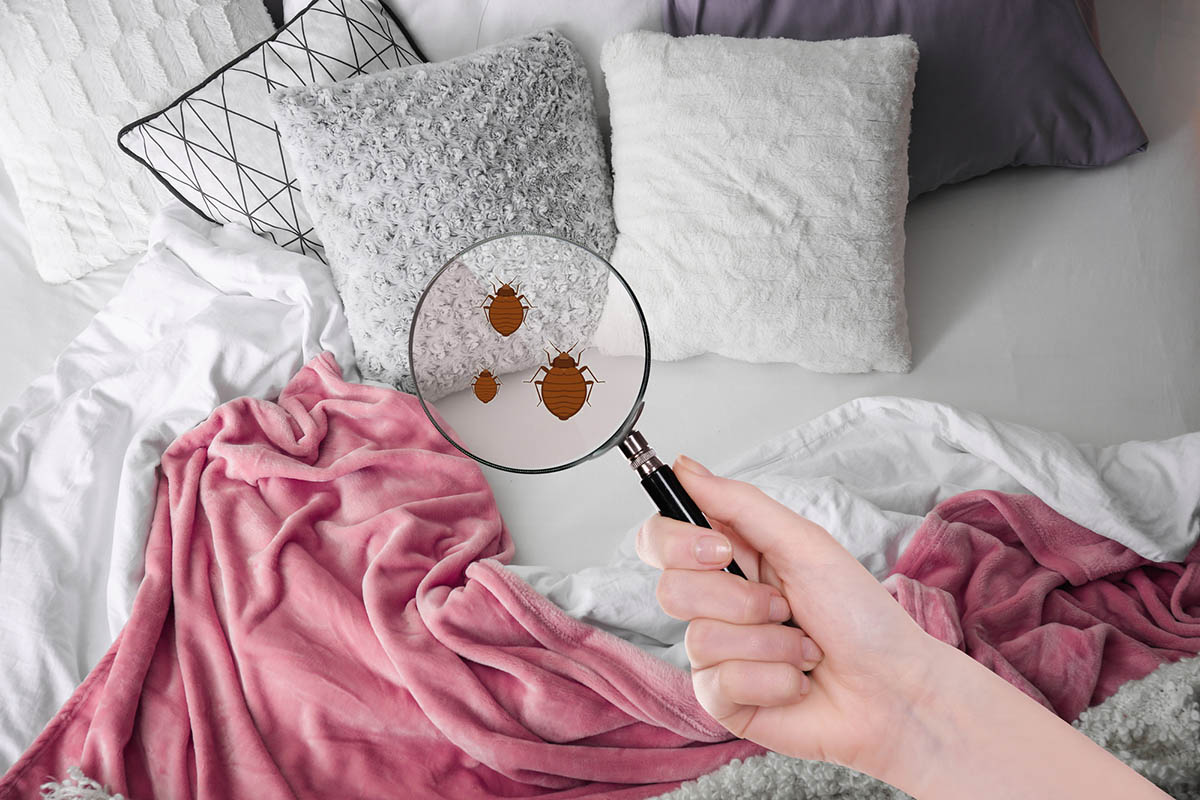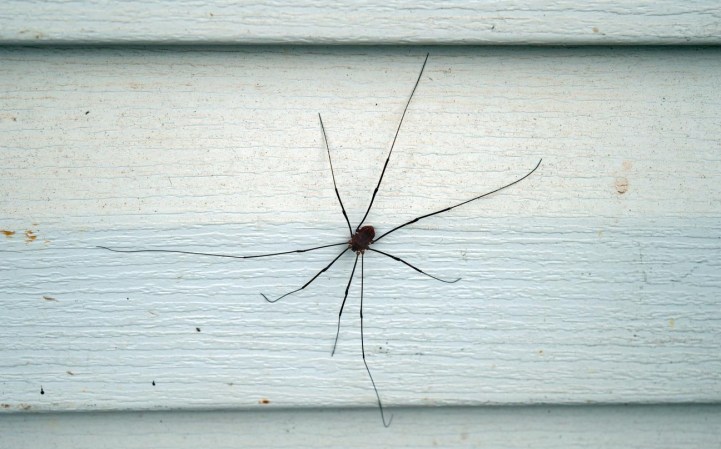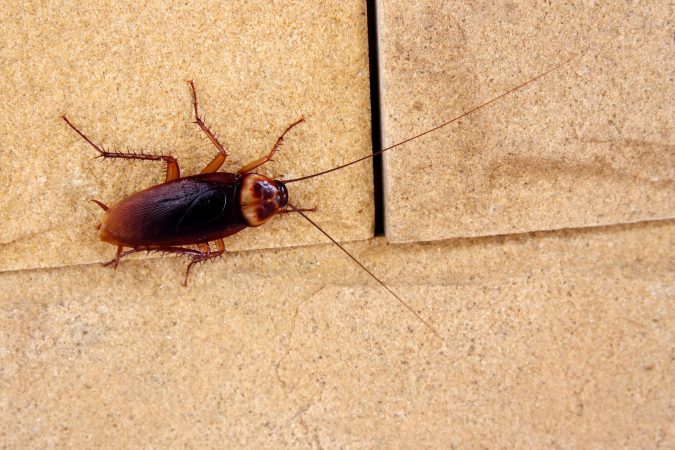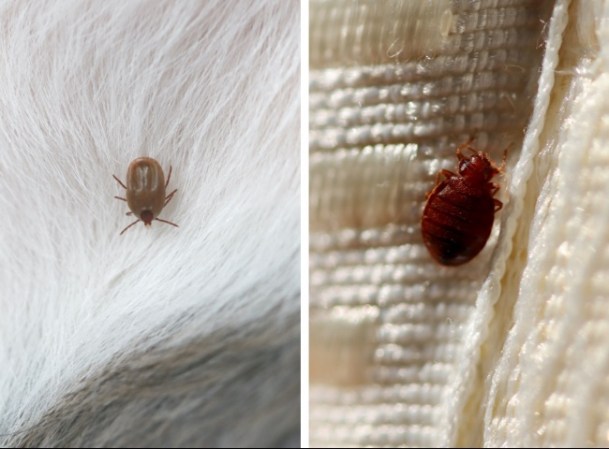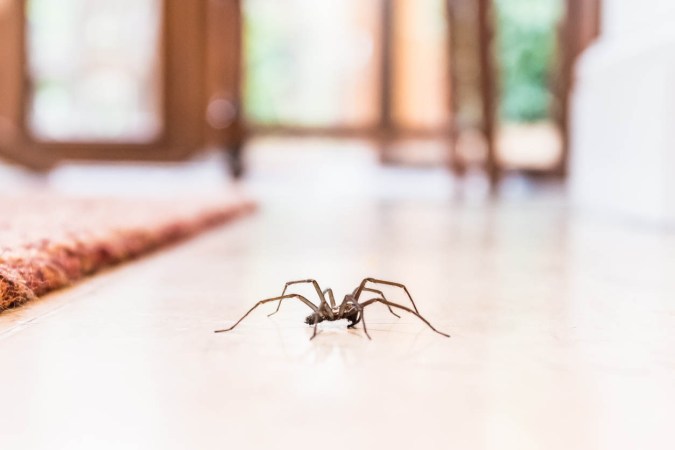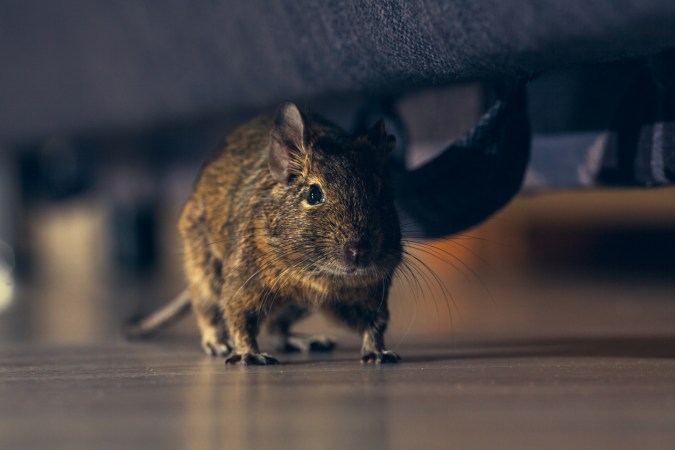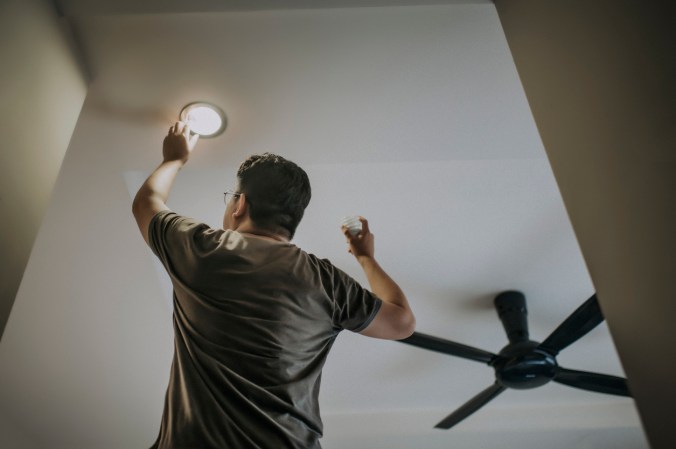We may earn revenue from the products available on this page and participate in affiliate programs. Learn More ›
Q. I think this rash on my skin might be bed bug bites. I have an exterminator coming, but I’m worried about any bed bugs coming back. How do you get bed bugs, and what causes bed bugs to move into a home?
Bed bugs are a nuisance that most people hope never to encounter. These insects leave bites that can create swollen red welts on the skin and cause constant, irritating itching. Furthermore, bed bugs can evade even the most painstaking efforts to clear them out.
As the adage goes, an ounce of prevention is worth a pound of cure—and that couldn’t be more apt for tackling bed bugs. The best way to treat bed bugs is to avoid getting them in the first place. Unfortunately, these persistent insects might wiggle their way into a home, especially if the resident is an apartment dweller or often stay in hotels. If a home’s resident suspects bed bugs, it’s a good idea for them to contact one of the best pest control companies, such as Orkin or Terminix, to address the problem immediately. While even the thought of tackling a bed bug infestation can make one’s skin crawl, there are steps to take to treat bed bug bites and get these tiny pests out of the house.
Bed bugs can enter the home from other infested areas. They can hitch a ride on furniture, luggage, and backpacks.
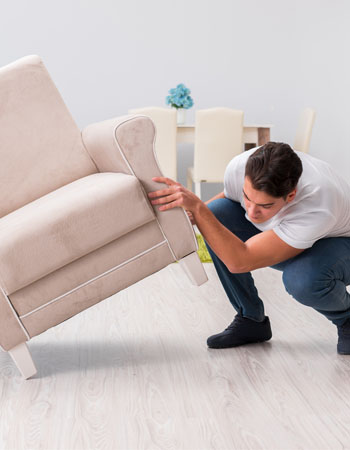
Even though they are called bed bugs, these insects can insert themselves into spaces beyond the bed. A common myth is that if someone has bed bugs or has come into contact with them, either they or the bed they slept in are unclean. This is because bed bugs are supposedly attracted to dirt or filth, but this couldn’t be further from the truth: People, clean or not, will attract bed bugs as they feed on blood. Unfortunately, it only takes one encounter with even a few bugs for them to hitch a ride on luggage, furniture, or backpacks.
You can get bed bugs from just one night in a hotel or a trip on public transportation.
It only takes one visit to the wrong place at the wrong time to bring bed bugs home and trigger a full-home infestation. Though it is less common, bed bugs can burrow themselves into seats on buses, planes, and other forms of public transportation, so it helps to make checking for them a habit to prevent further bites or potential infestation.
More often, people can find larger concentrations of bed bugs in hotel beds and furniture that have not been thoroughly cleaned and washed. To avoid this misstep, travelers may want to read online hotel reviews before deciding to book a stay to see if other guests have reported incidents of bed bug bites after their visit. Additionally, it’s crucial to get out of the infested location at the first sign of bed bugs and place any clothing or luggage from the trip in a sealed plastic bag before returning home.
To avoid bringing bed bugs home, travelers will want to keep luggage on a stand instead of the bed or floor when staying in a hotel. When they return home from their trip, they’ll need to wash their clothing and run everything through a hot dryer before bringing them back into the house. On public transportation, travelers can opt to stand rather than sit and hold their items rather than putting them on the floor.
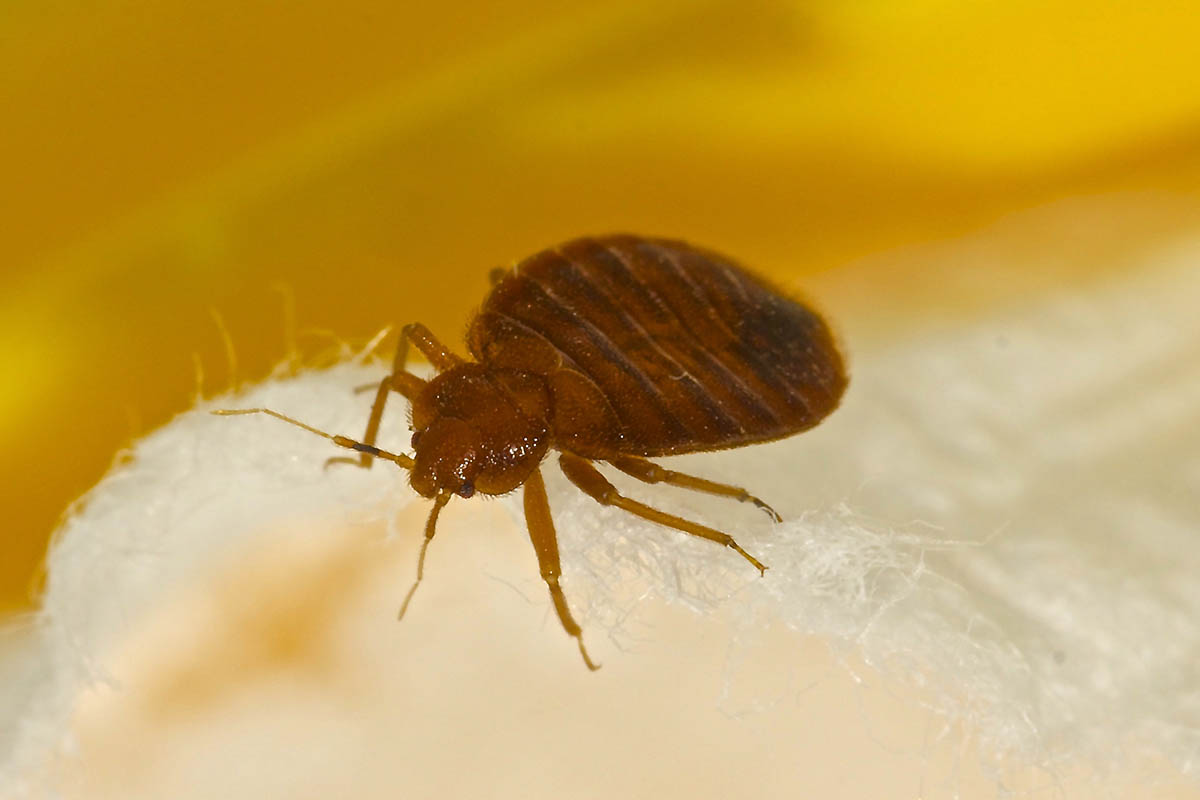
Bed bugs can move between rooms in multi-unit buildings like apartments or hotels.
No indoor space is safe from bed bugs, especially if there are many potential spaces for these insects to explore. Though bed bugs take refuge in beds and furniture, even the smallest holes in walls and floors can provide the necessary passageway for them to settle into a home and feed. This means people who live in apartment buildings or stay in a hotel may encounter bed bugs from a neighboring unit. Unfortunately, even the best attempts to avoid bed bugs could be thwarted.
In addition, bed bugs can live up to a year without food. Even if they go unnoticed for a long time after the first encounter, people living in multi-unit locations will still need to check their beds, walls, and furniture frequently for any signs of their presence.
Inspect second-hand furniture before bringing it into the home, especially upholstered pieces.
Frequent Facebook Marketplace or secondhand shoppers will want to make sure they double-check furniture for signs of bed bugs. It’s easy to spot signs of bed bugs in beds and furniture if they know what to pinpoint. Bed bugs feed on blood, so if there are tiny bloodstains on the upholstered furniture, that furniture could be infested. Bed bugs also leave behind dark fecal spots, minuscule eggshells, and shed skins. If any of these more obvious signs are present on secondhand furniture or bedding, the buyer won’t want to risk taking it into the home.
Furthermore, bed bugs also leave a rather unpleasant odor that secretes from their scent glands. If a homeowner or renter sees (or smells) any of the listed warning signs, they will want to take action immediately and scrub the furniture thoroughly before seeking professional help from an exterminator.

Bed bug bites and rashes on household members may indicate an infestation before you spot the bugs themselves.
If someone feels an irritating itch or bright red rash on their skin without explanation, it could be an early sign of bed bugs. Annoying bites alongside are an easy way to tell if you have bed bugs, especially if those bites are accompanied by dark stains or blood spots on a mattress. Because they can be so tricky to spot and can move rather quickly, bed bugs can bite people without them ever realizing it happened until it’s too late.
Anti-itch ointments can alleviate the symptoms of a bed bug bite and offer temporary bed bug treatment. However, to get to the heart of the problem, one will need to take preventative measures to stop an infestation.
Using a stiff brush, individuals will want to scrub the infected mattress to clear away the bed bugs and their eggs before vacuuming the surrounding area. Once cleaned and vacuumed, it’s advised to throw the infested bedding in the laundry to wash and dry it on the hottest possible setting. Finally, the resident will want to repair all cracks and fissures in walls and floors where the bed bugs could hide. This will ensure they have no way to come back into the home. However, it’s wise for a resident to consult a professional at the first sign of a more significant problem, as infestations can be challenging to mitigate alone.
If you suspect a bed bug infestation, call a pest control professional immediately.
If bed bug problems continue to get out of hand, residents will want to call an expert immediately. Bed bug treatment costs can be more affordable if the problem is treated early on, but if left untreated it can be expensive. If all the necessary steps still do not get rid of the bed bug infestation and the problem persists, a licensed bed bug exterminator can offer an effective solution to ridding a home of bed bugs and other unsavory pests.
